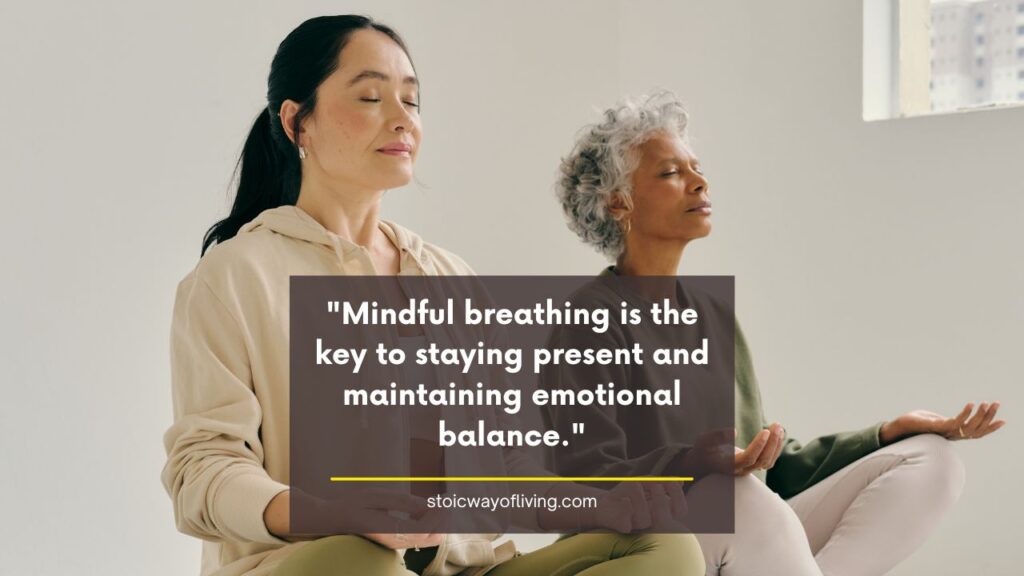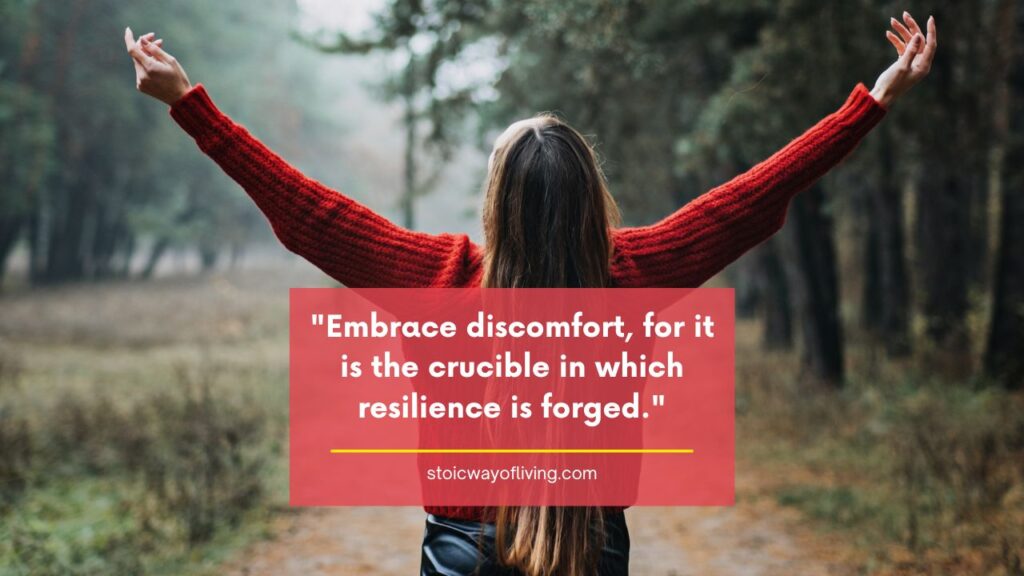Stoicism, an ancient philosophy, emphasizes rationality, self-control, and virtue, offering timeless wisdom for modern life. Emotional stability, a key trait opposite to neuroticism, is crucial for well-being and effective emotion regulation.
While considered a personality trait, emotional stability can be enhanced through learned skills, helping individuals respond to challenges with composure.
This guide explores practical habits inspired by Stoicism to foster emotional stability.
Morning Routine

Meditation and Reflection
Morning meditation, practiced by Marcus Aurelius, involves focusing on your breath to clear your mind.
Studies show that regular meditation reduces anxiety by 39% and improves overall emotional health.
After meditation, journaling your thoughts and intentions for the day can enhance self-awareness and set a positive tone.
Reflecting on gratitude and daily goals helps cultivate a balanced mindset, preparing you to face the day with clarity and purpose.
Setting Intentions
Setting daily intentions involves focusing on what you can control. Research indicates that goal setting increases motivation and reduces stress.
Each morning, define achievable goals, acknowledging that while external events are uncontrollable, your responses are within your power.
This habit, aligned with Stoic principles, fosters a sense of agency, reduces anxiety, and enhances emotional stability.
Daily Mindfulness Practices

Mindful Breathing
Mindful breathing is a simple yet effective technique that helps maintain presence and emotional balance.
Studies reveal that it can lower cortisol levels by up to 47%, reducing stress.
Practice conscious breathing during transitions or stressful moments to stay grounded and centered, promoting emotional stability throughout the day.
Embracing Discomfort
Seneca’s advice on embracing voluntary discomforts, such as cold showers or fasting, builds resilience.
This practice helps you face more enormous challenges with composure. Real-life examples include athletes who undergo rigorous training to build mental toughness.
Embracing discomfort reduces fear of the unknown and enhances emotional stability by transforming challenges into growth opportunities.
Emotional Regulation Techniques

Cognitive Reframing
Cognitive reframing, changing your perspective on adverse events, is a powerful technique.
Research shows that reframing stressful situations can reduce emotional distress by 35%.
For instance, viewing a job loss as an opportunity for new beginnings rather than a failure fosters a proactive mindset, which is essential for maintaining emotional stability.
Practicing Gratitude
Gratitude journaling, writing down things you’re thankful for daily, has increased happiness by 25%.
Recognizing and appreciating positives shifts focus from what’s lacking to what’s abundant, fostering contentment and reducing stress.
This practice builds a resilient and optimistic outlook, which is crucial for emotional well-being.
Building Resilience

Accepting Impermanence
Understanding the transient nature of emotions and situations is fundamental to Stoicism.
Accepting impermanence helps let go of uncontrollable factors, reducing attachment to outcomes.
Like Buddhist teachings, this perspective fosters resilience and emotional stability, allowing you to navigate life’s ups and downs with equanimity.
Developing Patience
Patience, a virtue in Stoicism, involves cultivating a long-term perspective.
Studies indicate that patience can lead to better mental health and well-being. Practice patience by setting long-term goals and breaking them into manageable steps.
Recognizing that progress takes time enhances your ability to stay calm and composed in stressful situations, promoting perseverance and resilience.
Evening Reflection

Reviewing the Day
Evening reflection is a time to review your day’s successes and areas for improvement.
Journaling about what went well and what didn’t can increase self-awareness and emotional intelligence.
This practice helps you recognize achievements and identify patterns needing adjustment, fostering a sense of closure and preparing you for a fresh start tomorrow.
Preparing for Tomorrow
Preparing for the next day by setting clear intentions and goals before bed reduces morning anxiety.
Ensure a good night’s rest; quality sleep is essential for emotional regulation. Research shows that adequate sleep improves mood and cognitive function, helping you manage emotions better.
Planning creates a smoother transition into the new day, reinforcing a stable and focused mindset.
See Also: Managing Anxiety with Stoic Practices: Your Key to a Calmer Mind!
Conclusion
Incorporating Stoic practices into your daily routine can significantly enhance emotional stability.
From morning meditation and setting intentions to practicing gratitude and evening reflection, these habits foster a balanced and resilient emotional state.
Remember, the journey toward emotional stability is continuous. By consistently applying these principles, you can navigate life’s challenges with more remarkable poise and grace, embodying the true spirit of Stoicism.
For those looking to master their emotions, consider checking out “Master Your Emotions” by Thibaut Meurisse. This highly-rated book offers practical strategies to reprogram your mind and make your emotions work for you. Available on Amazon, Click Here!


